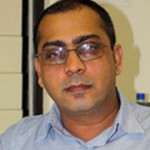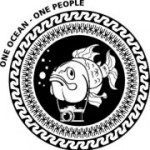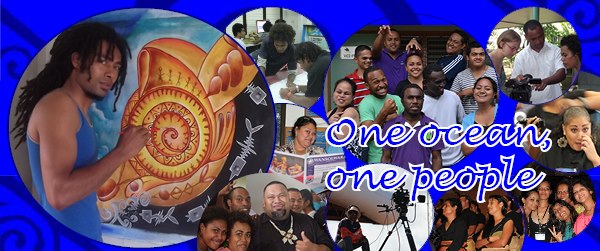Dr David Robie also blogs at Café Pacific
By DAVID ROBIE
SO it’s Scapegoat Season again at the University of the South Pacific journalism programme. Barely more than a year has elapsed since the last incumbent was dumped as head.

And now Australia-based Dr Ian Weber, a colleague of his predecessor, has shot out the “revolving door”, as Fijileaks put it. He apparently resigned the same week as the journalism classes were supposed to start for the year.
His litany of complaints about the USP establishment is much the same as many coordinators have expressed in the past, in private if not always publicly – “favouritism, lack of consultation and unethical pressure” plus general lack of support.
So what’s new? Well, this time Dr Weber has launched into an extraordinary and unfounded personal attack on his distant colleague, a local Fiji Islander who is well on the way to becoming the first Pacific Islands media educator at the regional university with a doctorate in journalism.
And Shailendra Singh, a former editor of the Fiji news magazine The Review who has put in far more of the hard yards for the benefit of Fiji and Pacific journalism over the past decade than any expatriate fly-by-nighter, is not even on the Laucala campus in Fiji.

He is on study leave in St Lucia at the University of Queensland, one of Australia’s best journalism schools, completing his research on a thesis, which will benefit Pacific media knowledge enormously.
Broadside response
So why is he being unfairly blamed? From afar, he has fired off a broadside in response to Weber on Fijileaks.
Just like the term “parachute journalists’, there ought to be an epithet used in the academe for “parachute academics”.
Recently the USP programme has faced a host of problems:
• The award-winning journalism training newspaper Wansolwara (it means “One ocean – one people”), publishing as a liftout in the Fiji Sun (an innovative industry partnership), was inexplicably dumped last semester. (This model newspaper that gave USP a high profile has been the subject of an international academic profile case study.)
• The only other Pacific academic, radio journalism lecturer Sorariba Nash from Papua New Guinea, was let go at the end of his contract (plus an extension) and he has now been snapped up by the University of Papua New Guinea. He has not been replaced by a specialist radio or multimedia lecturer.

• Former Fiji Times journalist Irene Manueli was also dumped at the end of her contract. She was enormously popular with students and did wonders with a Wansolwara facelift and in steering the newspaper to double prizes in the 2012 Ossie Awards – annual prizes for the creme of student journalism in Australia, New Zealand and the Pacific.
This award was also thanks to the student editors Sherita and Sheenal Sharma and their team.
Any university management that let Manueli go so easily with all her practical skills and experience must surely be brain dead.
The argument goes, apparently, that she lacked higher academic qualifications – as do almost all experienced professional journalists around the Pacific.
Future investment
No problem. The university should simply have made a serious commitment to supporting her get appropriate academic qualifications. This is called an investment in the future.
Instead, USP just relies on the expatriate revolving door to solve its problems.
Sure the Wansolwara Online site, first founded in 1999, has been revived but it hasn’t been updated since last October.
And this is hardly a substitute for the print edition with a proud history since the days when lecturer Dr Philip Cass and inaugural student editor Stanley Simpson and his team founded the paper in 1996.
While the tiresome slanging match goes on from the expatriate brigade, it is worth noting some of the achievements of USP journalism, penned by former journalism head Shailendra Singh after the 17-year-old Wansolwara’s success in the 2012 Ossie Awards.
Notably, USP has also won awards at national and regional levels, both in the student and open categories. In the inaugural 2004 Fiji Awards for Media Excellence, USP won ahead of 25 national print media entrants. It repeated this feat in 2007 when it beat the mainstream print media for the top award.
Regionally USP was a triple winner at 2010 SPREP Vision Pasifika Awards in the Open Category, Student Category, and a Special Commendation awarded to USP for helping develop environmental journalism in the Pacific. All this with two or three staff at the most, which is something that sometimes goes unappreciated.
So to set the record straight, Wansolwara has achieved much, and is well regarded, irrespective of comments to the contrary. Rest assured, USP journalism has been making a positive impact in the region for many years, despite attempts to rewrite its history by some.
My special thanks to Irene … [she] was hired specifically to oversee Wansolwara, her area of strength … I hope that the School recognises that she is a major strategic asset. People with Irene’s vast industry experience combined with academic qualifications are rare, not only in Fiji, but the region.

To put this in context, USP’s Wansolwara has won more Ossie Awards than any New Zealand journalism school (and many Australian j-schools too). In fact, only one out of 10 New Zealand j-schools has actually won an Ossie for its journalism school newspaper (AUT in Auckland, and it has won four times – fewer than USP).
That’s worth celebrating by USP, rather than closing the publication at the first hiccup, and then jumping ship.
 STOP PRESS: The good news is Wansolwara will be back – along with Irene Manueli. And broadcaster and former Radio New Zealand International manager Pat Craddock is coming to rescue the leaking ship, along with “gonzo” journalist from the Sydney Morning Herald Dr Matthew Thompson, author of Running With The Blood God and My Colombian Death.
STOP PRESS: The good news is Wansolwara will be back – along with Irene Manueli. And broadcaster and former Radio New Zealand International manager Pat Craddock is coming to rescue the leaking ship, along with “gonzo” journalist from the Sydney Morning Herald Dr Matthew Thompson, author of Running With The Blood God and My Colombian Death.
Disclosure: The author, an expatriate, was head of journalism for five years at the University of the South Pacific, 1998-2002, the longest serving foreigner at USP. He is now director of the Pacific Media Centre in New Zealand.
- Pat Craddock and Dr Matthew Thompson appointed
- Fijileaks on the USP journalism upheaval
- Wansolwara’s international credentials
- ‘Scapegoat Season’ at the Fiji Sun
- ‘Scapegoat Season’ at The Daily Blog






“Disclosure: The author, an expatriate, was head of journalism for five years at the University of the South Pacific, 1998-2002, the longest serving foreigner at USP. He is now director of the Pacific Media Centre in New Zealand.”
Whilst I agree with you David – that “parachute academic” remark could be leveled at you by some.
It’s a difficult environment. Given that quite a few years have elapsed SINCE you were amongst those living the experience, ten plus years later can make a huge difference.
As I said – difficult environment but at least we can be fairly sure you don’t have any particular agenda other than traditional journalistic values (Unlike a bitter old Queen from Kapiti or his Australian equivalent who seem to let their personal circumstances take precedence).
If ever there was a landmass that has been subjected to cultural differences – brought about by things such as colonisation, the struggle for power and representation, bitchiness, cargo-cultism, serial dysfunctional personalities, basic dishonesty …… etc ….. Fiji is it.
What’s worse is Australia and New Zealand governmental policy ineptitude – and not much that is sensible happening anytime soon
Hardly, Tim …
Get your facts right. I did two contracts at the University of the South Pacific and two before that at the University of the Papua New Guinea – a total of 10 years working for Pacific regional journalism programmes. No other expatriate working at USP journalism has even completed a single contract. And even though I am based in New Zealand now, I am still working for Pacific journalism 12 years later. My next Pacific media book will be out in a few weeks. My point is that there has to be long term commitment for the students, not just bail out when the going gets tough – as it always is.
David Robie encouraged, groomed and developed the locals. Marc Edge and Ian Weber ridiculed, fought with and dismissed locals.
Comments are closed.